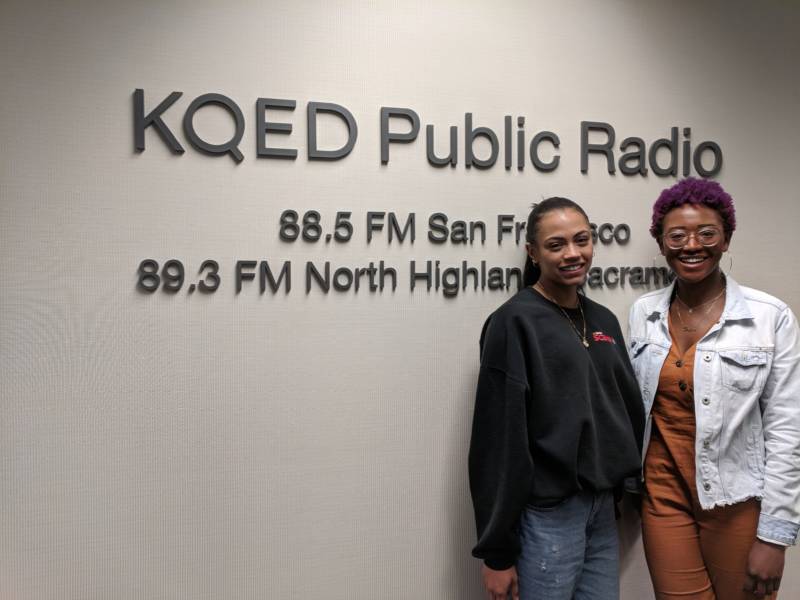This story was produced for Youth Takeover week at KQED.
Is 'Blackfishing' Cultural Appreciation or Appropriation?

Many people have heard of the online phenomenon catfishing — using other people’s photos without their consent to build fake social media profiles.
Blackfishing is a new trend on social media that some people say is similarly misleading. Influencers, mostly white women, are appropriating African-American features, using makeup, clothing and accessories to appear black, mixed-race or Latino to get sponsorships from companies and gain more followers.
Taylor Crumpton, a freelance columnist for Essence and Teen Vogue, said the trend first made news in 2018 when before-and after-photos of white models wearing dark makeup and traditionally black hairstyles went viral. She adds, blackfishing is an extension of the white fashion world’s long history of co-opting black women’s beauty characteristics.
“Carrie Bradshaw in Sex And The City wore a gold nameplate necklace which was very characteristic of black and latinx women in the South Bronx and Harlem,” said Crumpton during a discussion this week on KQED’s Forum.
Similarly, Kim Kardashian came under fire for sporting braids in a way that smacked, for some, of cultural appropriation.
Crumpton says society allows white women “to wear these kinds of black women’s beauty characteristics such as our jewelry and our fashions because it had been put on a white female's body, so it was now deemed fashionable.”
However, black women say they’ve faced consequences at work or school for wearing culturally black fashion.
Jasmine Powell, a student at Bishop O’Dowd High School in Oakland, says the issue hits close to home. As the sole black player on an almost all-white volleyball team, she says her white teammates ridiculed her for wearing her hair in a traditionally black hairstyle.
“I had singles, which are like really long braids, and one of my teammates said that’s what they wanted to wear for Crazy Hair Day," she said. "And that kind of baffled me because that hairstyle is a part of my culture and what I wanted to do with my hair.”
Powell now sees her traditionally black hairstyle cropping up in white fashion.
This is nothing new. There is a long history of white culture imitating black culture, like the minstrel shows of the 1930s.
When white culture imitates blackness, it “never comes from a true meaning to honor the culture, but in fact, to demonize it … and the people who created the culture,” says Crumpton.
Leslie, a listener who called in to the Forum show, notes that black women are often lampooned for their gender performance, which adds to the sting when white women are applauded for wearing black fashions.
“You have people who would talk about Michelle Obama being an ape in heels, for example," she said. "And one of my issues is, where are these women who are appropriating black women's beauty standards?”
Leslie says white women who imitate black female expression should be the first to stand up for black women who are being degraded.
“If these celebs really want to praise blackness,” one listener Tweeted during the Forum discussion, “they should use their influence to help their black brothers and sisters gain equal rights and status.”
